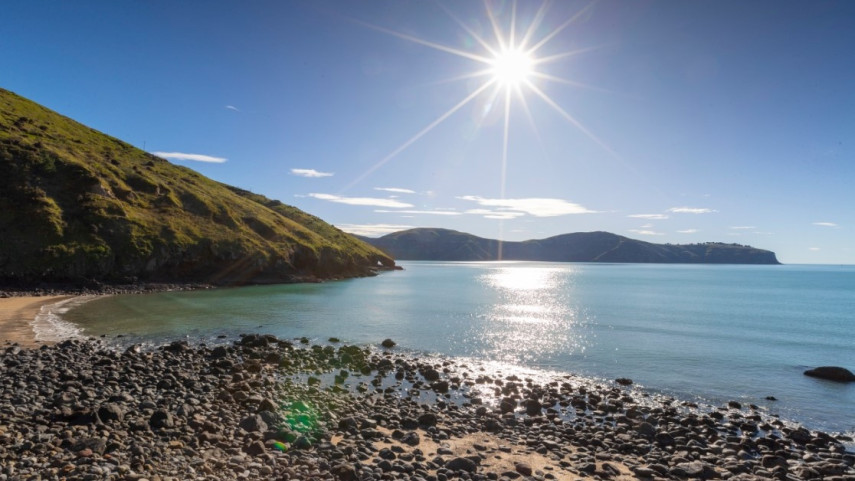
Environment Canterbury publishes recreation report

Share this story
Environment Canterbury has published its annual Contact Recreation Report.
The report grades over 100 of Canterbury’s most popular swimming spots to show their suitability for swimming and recreation. Grades are determined by five years' worth of water monitoring and sanitary survey data collected at each site.
ECan provides this information to local health authorities and district Councils so they can take the appropriate public health measures at each location. This includes signage and alerting community groups who commonly use the site. The report is also used to inform the advice given on the LAWA – Can I Swim here? website.
The grades shown in the report will be displayed on the LAWA website on September 24, National Rivers Day. Monitoring for the 2023-2024 summer season begins in late November.
If you are thinking of getting into the water over summer, make sure you visit the LAWA – Can I Swim Here? website for the most up-to-date information.
Grade changes at coastal sites
Notable differences this year for our coastal swimming spots include Tikao Bay in Akaroa and West Caroline Bay in Timaru, which have both changed from fair to poor grades.
“It’s important to note that this is only a small part of Caroline Bay, which has been previously identified as unsuitable, the rest of the bay remains swimmable,” said Surface Water Science Team Leader Shirley Hayward.
Charteris Bay, Avon-Heathcote South New Brighton and Duvauchelle Bay have all changed from good to fair quality. These sites remain generally suitable for swimmable.
“It’s worth noting that no changes in long-term grades have occurred at Lyttelton Harbour/Whakaraupō this year. This means the only spots deemed suitable for swimming are Paradise Beach - which holds a good grade - and Church and Cass Bays, which both remain fair,” Shirley says.
“With human sources of faecal contamination detected at a number of locations in the harbour, including Corsair Bay, these spots are not recommended for contact recreation due to the high health risk,” she says.
Grade changes at freshwater sites
In good news, five freshwater sites have improved in grade. Lake Tekapo/Takapō Beach changed from good to very good. Waiau Uwha at Waiau (SH70), Ashley River/Rakahuri above Rangiora-Loburn Bridge, and Opihi River/Ōpihi at SH1 have all improved from fair to good. Rakaia River at Gorge has improved from fair to good.
Lake Aviemore at Waitangi and Orari River at the Gorge sites saw a decline from good to fair, but remain generally suitable for swimming.
Ōtūkaikino River at the Swimming Hole and Pareora River/Pureora at Evans Crossing have both changed from fair to poor.
What is being done about our water quality?
“Improving water quality is a team effort, not only by us and our partners – Te Whatu Ora, territorial authorities and Rūnanga – but also with the community,” Shirley says.
“Residents play an important part, especially around the Lyttelton/Whakaraupō Harbour and Akaroa, where the Christchurch City Council continues its investigation into how these contaminants are entering waterways in the area.
“The investigation is complex as every public and private connection poses a potential contamination source, so it may take some time," Shirley says.
To help with the investigation, those who live in Lyttelton/Whakaraupō Harbour and Akaroa are encouraged to:
- Report any spillages, leaks, or pollution you see near waterways or drains.
- Pick up dog poo — never leave it on walking tracks, pavements or the beach where it can wash into drains and waterways.
- Always use the public toilets provided.
- When boating, dispose of on-board waste appropriately. Check the location of local dump stations and public toilets before you head out on your trip.
- Make sure your downpipes are not connected to your wastewater system – this can cause overflows into the stormwater network.
- Get your septic tank checked to make sure it is operating correctly.
“We want to engage with the community on this topic, so we will be coming along to some local markets and events to give residents an opportunity to talk to us about water quality,” Shirley says.
“We are also boosting our personnel, including laboratory availability, over the Christmas/New Year period to ensure we have the capability to respond in a timely manner if any issues or spikes in poor water quality occur over this time,” she added.
Recreational water users are encouraged to check lawa.org.nz before undertaking any activities on or in the water.
Swimming at any recreational site is not recommended within 48 hours after rainfall regardless of the site's grade. Rain can wash contaminants from roofs, land, drains and streams into waterways, making them temporarily unsafe for swimming.
